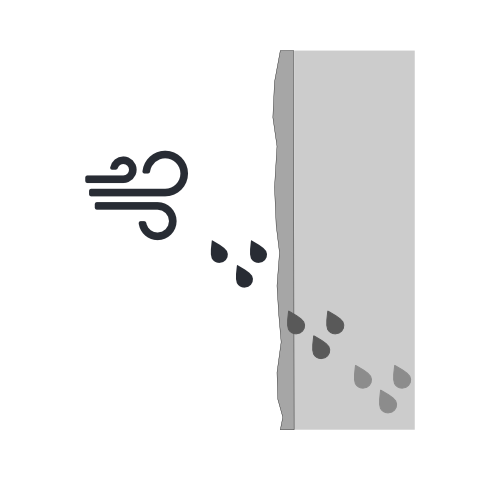
When designing a face sealed wall assembly—also known as a non-rainscreen system—there are several guidelines to ensure the wall remains structurally sound and functions as intended. A face sealed wall relies on the exterior surface as its primary weather barrier, making proper detailing critical.
The materials used for the wall assembly must be suitable for the intended use and meet local building codes and regulations. Consider durability, insulation, resistance to moisture, and fire performance.
Materials for face sealed wall systems include (but are not limited to):
Wood, Composite, Vinyl, Metal, PVC, GWB, and Stucco.
Non-rainscreen wall assemblies require proper ventilation to allow moisture to escape and prevent mold or mildew buildup. Incorporate ventilation channels and proper detailing to ensure adequate airflow throughout the assembly.
Proper flashing and drainage details are essential in a face sealed wall design. These components help ensure water is directed away from the assembly. Specify appropriate flashing materials and detailing at penetrations, joints, and transitions to reduce the risk of water infiltration.
Non-rainscreen wall assemblies have been widely used for many years, and established best practices and industry standards guide their proper installation. Consult with industry professionals and refer to relevant codes to ensure your face sealed wall design aligns with these requirements.
By following these guidelines, you can ensure that your face sealed wall design will be durable, efficient, and compliant with local building codes and regulations. Proper material selection, ventilation, and drainage all contribute to long-term performance.
Ready to streamline Face Sealed Wall Assembly detailing into your design?
Discover how D.TO enhances your daily design workflows on D.TO’s key features page, or schedule a demo to explore them in more detail!!
